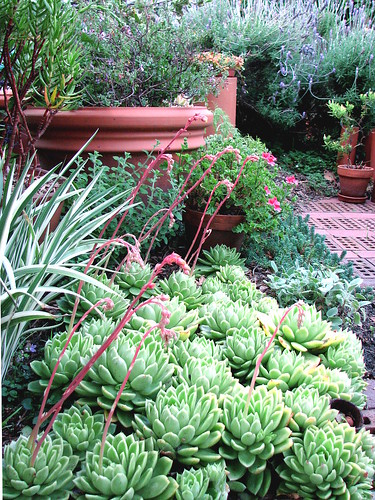This article will give you a lot of tips that will help your garden be more of a success for your business, your family or for you. By using these tips, you will be able to better understand the basics so that you do not purchase unnecessary items, or plants that will not grow in your climate.
The first thing you can do to ward off garden pests is to ensure you are using healthy soil in your garden. Healthy plants grown in robust and enriched soil have an advantage in fighting pest infestation. You want to cultivate quality soil with adequate salt levels, which leads to healthy plants.
The first thing you should do when planning a garden is test the soil. An inexpensive soil report can be used to adjust soil nutrients to optimum levels, which will ensure your garden thrives. It can avoid ruined vegetables and flowers, so check with places, such as a cooperative extension department to see where you can obtain the analysis.
Cooling weather of early fall signals the opportune time to plant seasonal edibles. Instead of a clay pot, show some fall spirit by using a hollow pumpkin to plant your lettuce or kale in. Slice a hole around the stem, and pull the pumpkin top out. Then remove the guts and use Wilt-Pruf to cover the insides and prevent rot. After that, your pumpkin planter is ready to use!
Knee Pads
Get some gardening knee pads if you find yourself kneeling on the ground a lot to do your horticulture. Long hours tending your garden can leave your knees sore and achy. Having a pair of excellent knee pads for gardening can help cushion the knees to provide additional comfort.
If you want an organic way to weed your garden, try "boiling" them. The safest herbicide that you can probably find is a cup of boiling water. Just pour out the water on the weeds being careful to avoid any nearby plants. If you pour the water near your plants, it will kill the roots.
Divide irises. Try increasing your stock by dividing your overgrown clumps of plants. When the foliage has died off, it is time to harvest the iris bulbs. The bulbs will automatically split in you hand, and will likely flower the year after being replanted. For plants with rhizomes, use a knife to divide them. Cut new pieces from the outside and discard the old center. Divide your pieces carefully; they should each have one good quality offshoot apiece. All that is left to do is immediately replant the pieces you have created and let the cycle begin anew.
Start your garden by planting seed in small pots. When planting a garden, the best way is to initially start with seeds. Plastics from nurseries aren't recycled often, which causes them to go into landfills; so try starting with seeds, or buying from organic nurseries.
Try pouring water leftover from steamed vegetables onto your potted plants. It contains rich nutrients that come from the vegetables. Add coffee grounds or tea leaves to the soil of acid-loving plants like rhododendron and gardenia. If fungus is an issue, Chamomile tea sprinkled on the plant may be effective.
Chill out by taking time to garden. There are a wide variety of things you can do to release stress and relax. One of the best ways to do this is gardening. The generous return of a garden far outweighs the minimal investment of money required. The best return is the joy and tranquility you can get from growing your very own greenery.
You should teach your children how to garden alongside you. A garden can provide a wonderful learning experience for children, and will give you an opportunity to bond with them while you produce healthy food.
Have plastic bags on hand so that you may cover your muddy gardening shoes. This helps the flow keep going so that you can get into the garden quickly to finish what you're doing.
You will need the correct information, lots of patience, and the ability to spend time working outside. Once you look upon your amazing garden, you'll realize that the work has paid off!
